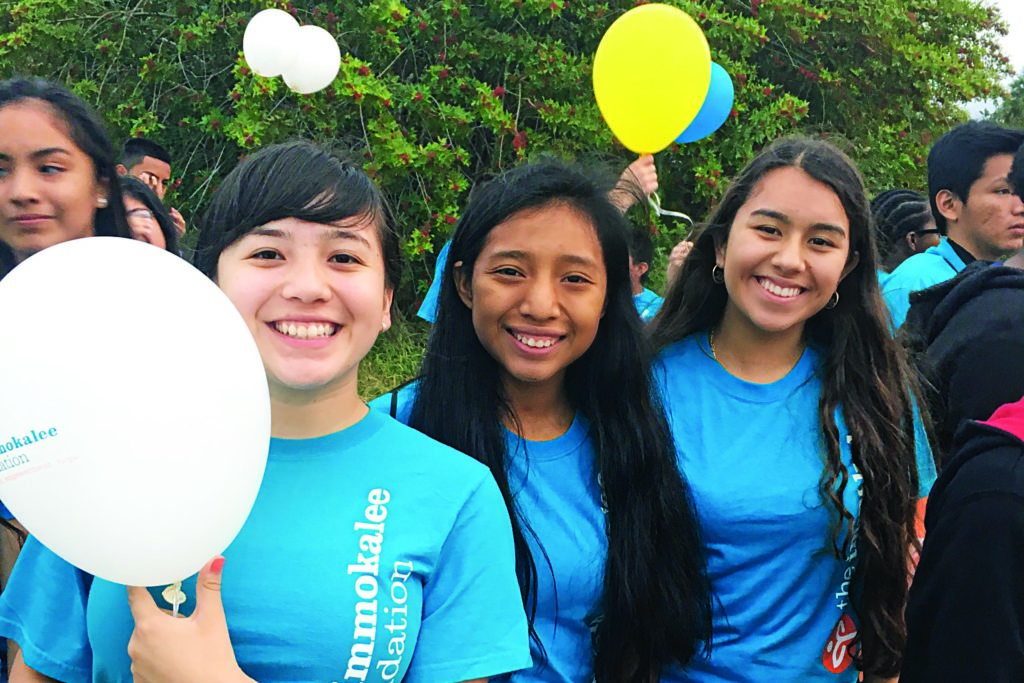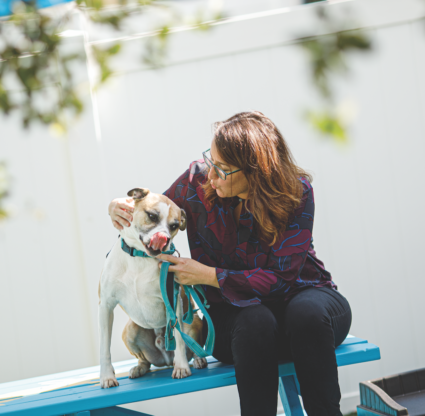The ongoing vitality of any community depends on its children. The Immokalee Foundation and Pace Center for Girls, Lee County, have gone all-in on their missions to set up area students for educational and career success. Both help lay the foundation for the kids they serve by providing them with skills and tools to overcome life’s challenges and guiding them through getting a solid primary and secondary education.
Taking it a step further, the organizations also help the kids establish their next steps, whether that’s a college degree or a technical program that allows them entry into well-paying careers. The Immokalee Foundation and PACE have general similarities but specific focuses.
The Immokalee Foundation works with students growing up in the agricultural community of Immokalee, an area where opportunities may not be as obvious or readily available. This area has also felt the effects of the pandemic more strongly than other places. The foundation opens students’ eyes to career possibilities in Southwest Florida, then helps them follow the steps needed to achieve them.
Pace Center for Girls, Lee County, on the other hand, focuses on young women in Lee struggling with situations at home that make it harder for them to thrive in a traditional school setting. By providing them a learning environment free from some of the usual distractions of middle and high school, they can concentrate on their educations while also receiving counseling to help them process their traumas.
Taken together, the groups serve as potent examples of what can happen when potential that might have otherwise gone untapped begins to be realized.
THE IMMOKALEE FOUNDATION
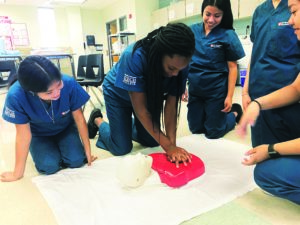
Located 35 miles east of Naples, the community of Immokalee has about 25,000 annual residents, plus another 10,000 or so who live there during the winter growing season. It’s an area with a large population of agricultural workers, many of whom immigrated to the United States from other countries.
“The average median salary for our residents is about $24,000 a year,” says Noemi Y. Perez, president and CEO of The Immokalee Foundation. “Just that fact tells you a lot about why our education programs are so important.”
The ongoing COVID-19 pandemic has placed added stress on the community. According to the Florida Health Department, as of July 20, there were 7,715 COVID-positive residents in Collier County; more than a third of them lived in Immokalee.
Founded in 1991, the foundation has worked with more than 11,000 students since its inception, serving some 1,400 Immokalee students each year.
The programs begin with elementary school students through its Immokalee Readers program, which pairs children who are reading below grade level with trained high school-aged tutors, who are supervised by professional teachers and work with the elementary schoolers to improve their literacy skills.
The innovative Career Pathways program begins working with students in middle school and continues through high school. It was created in response to the workforce needs in Southwest Florida.
Through research and conversations with local businesses, the foundation identified four sectors where students can find in-demand and well-paying jobs: engineering and construction management, business management and entrepreneurship, education and human services and health care.
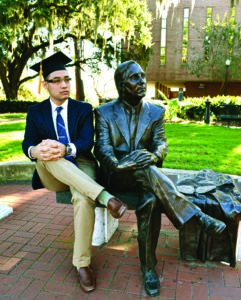
Students start exploring career options in sixth grade, learning about different opportunities available to them and what it takes to land jobs in those fields. By eighth grade, they’ve created a career action plan to guide them through high school, which lays out the classes they should take and the post-secondary programs they should focus on to achieve their desired profession.
Throughout their time in the Career Pathways program, students also get the opportunity to participate in industry and office tours; career panels featuring professionals from various fields; and job shadowing, internship and apprenticeship opportunities. The foundation aims to pair each student with a mentor, but they need more community volunteers to make that happen.
When Perez first joined the foundation 12 years ago, the high school graduation rate in Immokalee was below 40%. It’s now about 92%. And students involved with The Immokalee Foundation programming have an even higher rate, with 100% of them graduating from high school, 100% going into a post-secondary program and 91% graduating with a post-secondary degree. “There’s no greater feeling than to be a part of something great,” Perez says. “These kids are going to run the world one day, and helping to be a part of that change is priceless.”
Joel Garcia, whose parents work in local agriculture, first got involved with the foundation while in high school. His younger brother was already enrolled in its programming, and Garcia followed his lead. The oldest of five children, he served as a reading tutor, toured colleges with the foundation and learned about scholarships.
He went on to graduate from Florida Gulf Coast University with a civil engineering degree in 2018, and now, at 25, works for an engineering firm. “If I wasn’t involved with the foundation, I wouldn’t have been thinking about what comes after high school; I would have just been thinking about what I was doing next week,” he says.
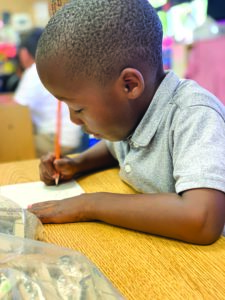 And he’s not the only one in his family who’s benefited from the foundation’s educational programming. All four of his younger siblings have also been involved. His brother recently graduated from Cornell University, his sisters now study at Ave Maria University and University of Florida, and his youngest brother is in his senior year in high school. “My parents are definitely proud,” Garcia says.
And he’s not the only one in his family who’s benefited from the foundation’s educational programming. All four of his younger siblings have also been involved. His brother recently graduated from Cornell University, his sisters now study at Ave Maria University and University of Florida, and his youngest brother is in his senior year in high school. “My parents are definitely proud,” Garcia says.
The pandemic has forced The Immokalee Foundation to deliver its services virtually. Since the crisis began, the group has provided more than 80 laptops to students without access, and did everything else needed to ensure students don’t skip a beat.
The foundation is also keeping a close eye on its students and their families, providing additional services, such as partnering with the Benison Center (an organization founded after Hurricane Irma to offer long-term assistance to the community) to provide food to families in need, and directing families to additional services for help with housing, health care and other issues. “Even through everything else going on, they knew they could rely on us,” Perez says. “And that is very important for our students.”
PACE CENTER FOR GIRLS, LEE COUNTY
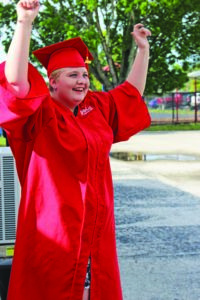
When Meg M. Geltner was asked to be the executive director of the Pace Center for Girls, Lee County, seven years ago, she began researching the organization and was impressed with what she learned. Here was a successful nonprofit set up to help girls ages 11 to 18 who are struggling in and out of school.
She learned that the group works to divert young women from the juvenile justice system and help them complete their education. This is done through small classes taught by teachers trained in state educational standards and in working with students who have suffered trauma.
An added emphasis on counseling helps ensure that students have the emotional and life skills needed to stick with their educations. “I thought, ‘Wow, this program has all that is necessary to truly impact the lives of young girls,’” she recalls.
One of 21 Pace Centers located throughout Florida, Pace Center for Girls, Lee County, in Fort Myers, has worked with more than 800 girls and teens since 2007.
Its gender-specific program focuses on at-risk girls who have suffered traumas in life and are in danger of dropping out of school, with 75% of them failing one or more classes prior to attending Pace. Students commit to a full year but often stay for two, before returning to traditional high school or moving on to higher education or employment.
The challenges the girls have dealt with—which can include having parents with substance abuse problems, placement in the foster care system, and physical, emotional and sexual abuse—often make it hard for them to function in a traditional school environment.
Geltner believes that the counseling is a key factor that sets the program apart and makes it so effective. “This is the magic side of things,” she says. “The counselors meet with them regularly. If a girl is having a bad day, she can come into the counseling side of the school. And once they transition from Pace, their counselor will follow them for five years.”
The results speak for themselves. Geltner says that while nearly half of the girls that come into Pace have already had a run-in with the law, within one year of completing the program, 96% of students have no involvement with the criminal justice system and 95% are either in high school, enrolled in a post-secondary program or gainfully employed. “Often times, the girls are the first member of their family to go on to college,” Geltner says.
During the pandemic, Pace has been providing its counseling and academic services to students virtually, including through the summer, as it operates year-round. Like The Immokalee Foundation, the organization provided laptops to the girls to support the transition to virtual learning. They’re also helping connect students and their families to local resources for food and other needs.
In June, the center hosted a drive-thru graduation ceremony so 2020 high school graduates, their families and Pace staff could celebrate.
One of the program’s students, 18-year-old Medji Fabius, will be starting her first year at Florida SouthWestern State College this fall, where she plans to study nursing. “Ever since I was little, I always liked how being a nurse is taking care of people,” she says.
In her high school, Fabius struggled with math and reading and couldn’t get her grades up. Her math and reading teachers at Pace helped explain things in a way that made sense and allowed her to keep learning. “They make you feel like you’re not alone—I didn’t feel like I was the only one who doesn’t understand,” she says.
The counseling part of the equation was especially beneficial for Fabius. “It felt really nice to have someone to talk to not just about school but also about what was going on at home,” she says, adding that the unconditional support has been transformative for her. “If I didn’t attend Pace, I don’t think I would be going to FSW in the fall. When I got to Pace, they welcomed me with open arms, and even when I was ready to give up, they were with me every step of the way. With Pace when you need help, they’re there to help you. They don’t judge you by your grades or by what’s going on at home. They understand where you’re coming from and they’ll do anything to help you.”
Photos Courtesy of The Immokalee Foundation & Pace Center for Girls, Lee County

